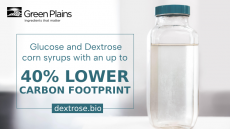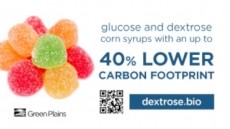Mars: We have no agenda to create chocolate health halo with cocoa flavanol studies

An article and video published recently on Vox alleges companies - particularly Mars - have deliberately manufactured a myth that chocolate is a health food by funding studies on cocoa flavanols.
The news website says industry-financed studies - even those on cocoa flavanols in drinks or supplements - have led to hyped-up media reports about chocolate’s health benefits and created a health halo, propping up chocolate company sales.
How influential is Vox?
American newsite Vox was created in 2014 by former Washington Post journalist Erza Klein. Its website has around 9m unique visitors a month, according to Quantcast, while its YouTube channel has more than 3.5m subscribers. Its typical reader profile is a grad school educated male between 25 and 34.
“Big Chocolate’s foray into nutrition research is a great case study in how an industry can steer the scientific agenda - and some of the best minds in academia - toward studies that will ultimately benefit their bottom line, and not necessarily public health,” said Vox’s latest article on the topic.
Mars: ‘We don’t do research to steer an agenda’
But Mars has defended its research.
“We don’t do research to ‘steer’ an agenda, and it isn’t a foray – nutrition research has been a critical part of what we do for decades.
“This has resulted in publishing 140 science papers on flavanols in peer-reviewed journals,” a spokesperson told ConfectioneryNews.
Bias allegations
Vox said it analyzed 100 Mars-funded studies and said 98 drew positive or favorable conclusions about cocoa and chocolate.
It alleged some studies were “flawed” due to small sample sizes and short trial periods.
Vox called out a 2014 study published in Nature Neuroscience in which 37 participants - four of whom dropped out - trialed a cocoa-based drink for 12 weeks, which it says led to mainstream media reports touting chocolate as a brain food to improve memory.
Mars: Chocolate not a health food
Mars acknowledged “there is a risk” its cocoa research could lead to confusion about chocolate’s health benefits, but said it does not market chocolate as a health food and says its research aims to address critical challenges in food security, sustainable agriculture and public health.
“Some studies have been short term and used small sample sizes,” said Mars’ spokesperson.
“This is an established practice when scientists start explore new research fields.
“This research has shown that flavanols can improve the performance of the cardiovascular system and may help support cardiovascular health. We are now looking to build on the research in this area,” they continued.
Mars said it had not undertaken a study to investigate the health benefits of chocolate for over a decade.
“Chocolate should not be considered a health food. Chocolate is a treat and should be enjoyed as such, and in moderation,” said Mars’ spokesperson.
A distinction: Specific compounds and chocolate
They added Mars has spoken often and openly about making a distinction between cocoa flavanols and chocolate.
Flavanols are compounds found in fresh cocoa beans and other fruit, such as apples, pears and berries, said the spokesperson.
“But they are largely destroyed during the manufacturing of chocolate. Chocolate therefore only contains negligible amounts of flavanols, no matter the amount or percentage of cocoa,” said Mars.
In 2015, researchers from the Mars-backed FLAVIOLA project told this site chocolate was too calorific to be a delivery vehicle for cocoa flavanols.
Mars concentrates on supplements
Mars said today it is concentrating on how dietary flavanols in supplements may help support cardiovascular health.
In 2015, it began a five-year Cocoa Supplement and Multivitamin Outcomes Study (COSMOS) of 18,000 men and women and expects to have results by 2020.
“Like our other current research in this area, this focuses on cocoa flavanols, not chocolate,” said Mars.
The company produces a range of flavanol-enriched products under its CocoaVia brand.
“CocoaVia is available as a drink or capsules – the CocoaVia product line is entirely outside the chocolate category,” said Mars.
Cocoa health claim
In 2013, ingredients supplier Barry Callebaut won an European Food Safety Authority (EFSA) approved health claim stating a daily intake of 2.5 g of dark chocolate containing 200 mg of cocoa flavanols (of any class) “contributes to normal blood circulation by helping to maintain the elasticity of the blood vessels”.
For the past five years, Barry Callebaut has enjoyed exclusivity on the claim - which it has licensed to companies such as Vandenbulcke and the Good Chocolate Company.
The health claim will become available to any European-sold chocolate brand containing the requisite level of flavanols this year.
Most brands will be unable to make a claim.
A 100 g bar of dark chocolate typically contains between 53.49 mg - 108.6 mg of cocoa flavanols, while the same amount of milk chocolate contains an average of 15.04 mg, according to a 2013 analysis by the US Department of Agriculture (USDA).
Which flavanol?
A study by a team at the University of Frieburg, University Hospital of Basel and the University of Bonn in 2016 claimed Barry Callebaut’s health claim ‘should be revised’ because 100 mg of the specific flavanol epicatechin is needed to achieve the desired health effect. They said 200 mg of total flavanols – including catechin and other phenolic compounds only contains 46 mg of epicatechin. Barry Callebaut said at the time its claim was granted thorough procedure requiring sound scientific evidence.





















